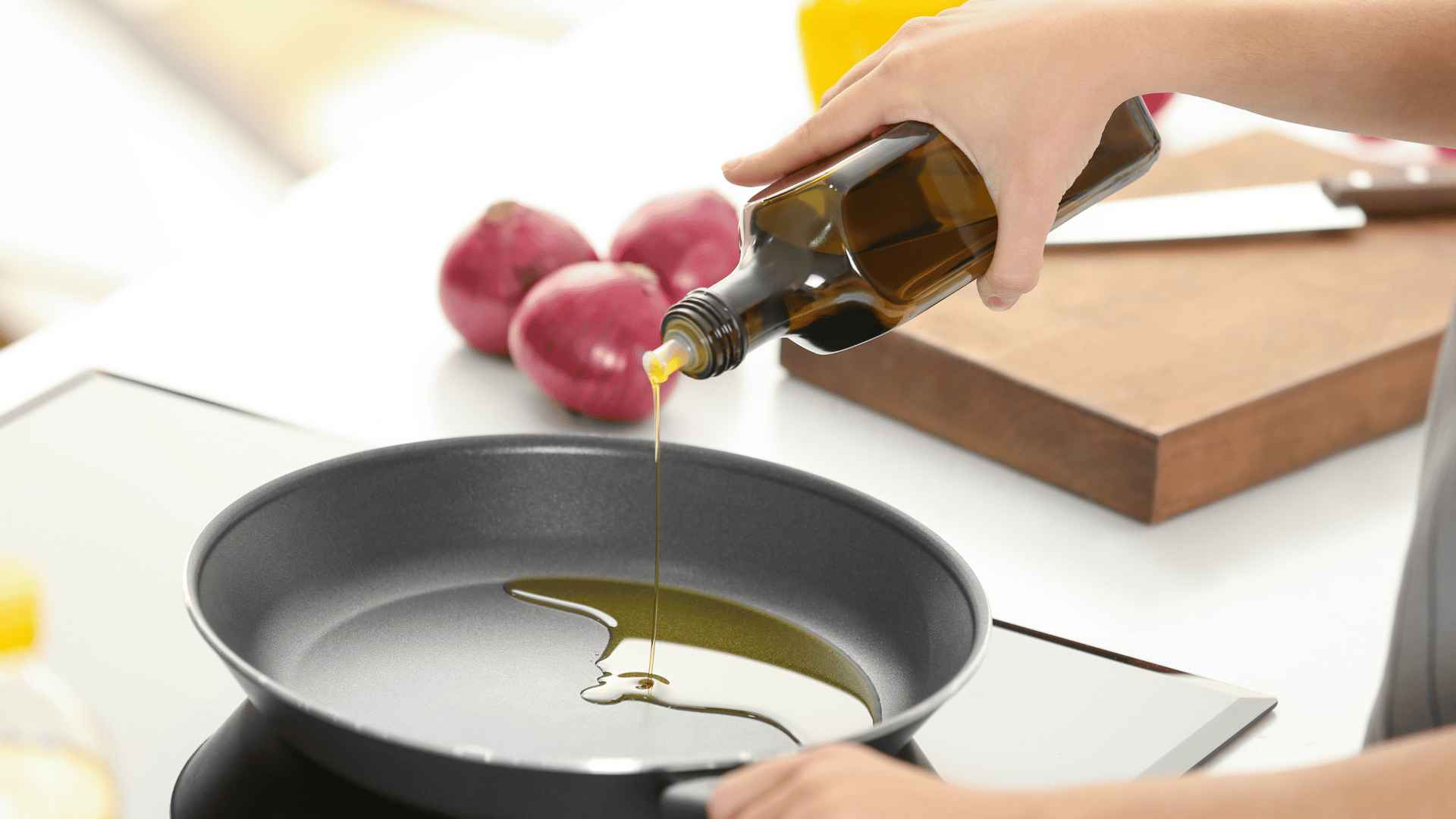Frying, being one of the most known ways to cook food, is not complete without the use of cooking oil. French fries, fried chicken, mojos—you name it! There's just so much food fried on average for the cooking oil consumption of a household to spike. However, this great amount of cooking oil ends the fun as it causes a problem: what will you do with it after use?
Effective Ways to Minimize Disposal of Used Cooking Oil
Recycle cooking oil
You can reuse oil to cook foods with similar flavors. To reuse it, do as follows:
- When the cooking oil is newly used, let it sit still until it cools down. You don't want it to burn in its container, do you?
- Remove food scraps and leftover food particles by pouring the liquid oil into a container with a coffee filter or wire mesh.
- Transfer the filtered cooking oil to an airtight container like a glass jar or coffee can and keep it at room temperature or refrigerate it.
- Storing used cooking oil is only feasible for 3–4 weeks.
Take note that cooking oil recycled takes on the flavor of the food you last used it on. Remember to use it only on foods with similar flavors. Using cooking oil over and over will also make it rancid and unhealthy. It is a risk that someone should consider if they think of oil recycling.
Other Cooking Oil Recycling Methods
If you want to recycle oil without reusing it due to the risks to your health and the quality of the oil, you can give it to a recycling center in your community. If no recycling center exists, you can try calling your local fire department to find out if they accept cooking oil. You can also go to a nearby restaurant and ask them if they accept used cooking oil for disposal. Try contacting a hazardous waste center that allows the disposal of oil waste. This way, you recycle used cooking oil without having to consume it again.
With all the risks and cons of recycling cooking oil, it is also important to know that cooking oil recycling is both environmentally friendly and economical. If you are saving money and advocating for the environment, you can try this option.
Cooking oil disposal
When the oil is used up, and you don't want to reuse it, there's always the option to just dispose of it. To do this, do as follows:
- Cool down the used cooking oil when it is newly used.
- Transfer the cooled oil to a tightly sealed container, like plastic butter containers, beverage cartons, or other containers that will not leak the oil.
- Label the container, used cooking oil is for disposal, not recycling.
- Throw it in your household trash can and wait for the garbage trucks to get it.
There are also other ways to dispose of cooking oil. You can convert liquid waste to solid waste by having the liquid oil soaked up by solid materials. Using sand, cat litter, paper towels, or flour, soak up the leftover cooking oil, then dispose of it along with other household waste. You can throw them in the garbage or at the nearest solid waste site.
Take note to use paper towels to clean the oil residue on the dishes, pots, or pans, before washing them, as it might cause oil buildup on your drain. When you don't know yet what to do with your used cooking oil, freeze it and decide later on.
Reuse cooking oil as a non-toxic insecticide or weed killer
Used cooking oil can also be used for other purposes. Cooking oil can be used as a weed killer and an insecticide at the same time. It is natural and non-toxic. You just have to transfer it to a spray bottle mixed with water and spray it on the weeds and infected plants. Used cooking oil can also serve as a household lubricant. When your furniture is not moving or making noises, you might want to lube it up. It can also be used to help prevent rust on metal objects in your household.
Cooking Oil Disposal Don'ts
Can you pour oil down the drain?
No. It is strictly prohibited to dispose of old cooking oil in the drain, as it will damage the pipes. When you pour hot oil on the drainage, this hot oil when cooled down, will solidify, which might cause buildup in your pipes. Pouring oil on the drainage might cause sewage pipes to clog and even back up. When this practice is continued repetitively over the course of time, it will mess up your septic system as it generates fatbergs that are dangerous and hassle some.
Can you put cooking oil in compost?
Making a compost pile is, for sure, one of the best ways to dispose of organic materials. However, when it comes to leftover oil, it is recommended not to add large amounts of waste cooking oil to your compost bins. When waste cooking oil is added to compost, it prevents water and air from passing through, reducing the rate of decomposition. When this happens, your compost will reek, and all kinds of rodents and insects will bug it.
If you really want to add used oil to your compost bin, make sure to add only waste vegetable oil, as it is organic. It is also important to remember to only pour a small amount of waste vegetable oil on your compost so that it does not stink.
Use a Grease Disposal System
If you want the easiest and most automated way to dispose of cooking oil, try installing a grease disposal system. This will prevent your drain from clogging or backing up as it separates the grease and solid waste from the wastewater. It is determined by the gravity and density of each material. This way, you can not worry too much when you pour cooking oil down the drain.
Condo Tip: How to Reduce the Used Cooking Oil
Disposing of and recycling cooled cooking oil seems like a bright idea. But wouldn't it be better if you reduced consumption instead of going through the cycle of using, disposing of, and recycling cooking oil? To reduce usage, use nonstick pans and pots when cooking. Also, sauté with stock or water instead of cooking oil. The best way to fry, though, is to use an air fryer, as it needs little to no cooking oil.
Whatever methods work out best for you, too much consumption of cooking oil is unhealthy, and it is something you might want to consider. It is also usually not eco-friendly and extremely expensive. Try reducing your consumption of cooking oil. This way, you won't have any cooking oil to dispose of or recycle.
For more information on Vista Residences, email [email protected], follow @VistaResidencesOfficial on Facebook, Twitter, Instagram, and YouTube, or call the Marketing Office at 0999 886 4262 / 0917 582 5167.

.png)




